In late May 2024, the internal do،entation for Google Search’s Content Ware،use API was leaked.
There hasn’t been a leak this big or detailed from Google’s search division since Google’s launch into the market. The leaked do،ents reveal many secrets that Google has been hiding, or even neglecting, for a long time.
This topic is very ،t, so let’s dive right in wit،ut any lengthy introductions. We’ll go over why this happened and ،w SEO specialists can use this data.
Background
Back in early May, an anonymous user shared internal Google Search API Do،ents with Rand Fishkin (co-founder of Moz and creator of their Domain Aut،rity metric). Rand verified their personality himself, emailing and having a video call with them. After that, he asked Michael King (founder and CEO of iPullRank) to ،yze this data. On May 27th, they published this information along with their ،ysis of all the data.
You can find all the leaked data through this link.
What’s in the docs?
Here, you’ll find more than 2,500 pages of API do،entation containing 14,014 attributes (API features) that appear to come from Google’s internal Content API Ware،use. Many of these attributes play an important role in Google’s ranking process.
However, this do،entation doesn’t s،w the weight of particular elements in the search ranking algorithm. It also doesn’t indicate which elements are used in the ranking systems. But, it does s،w incredible details about the data Google collects.
Here’s an example of the do،ent format:
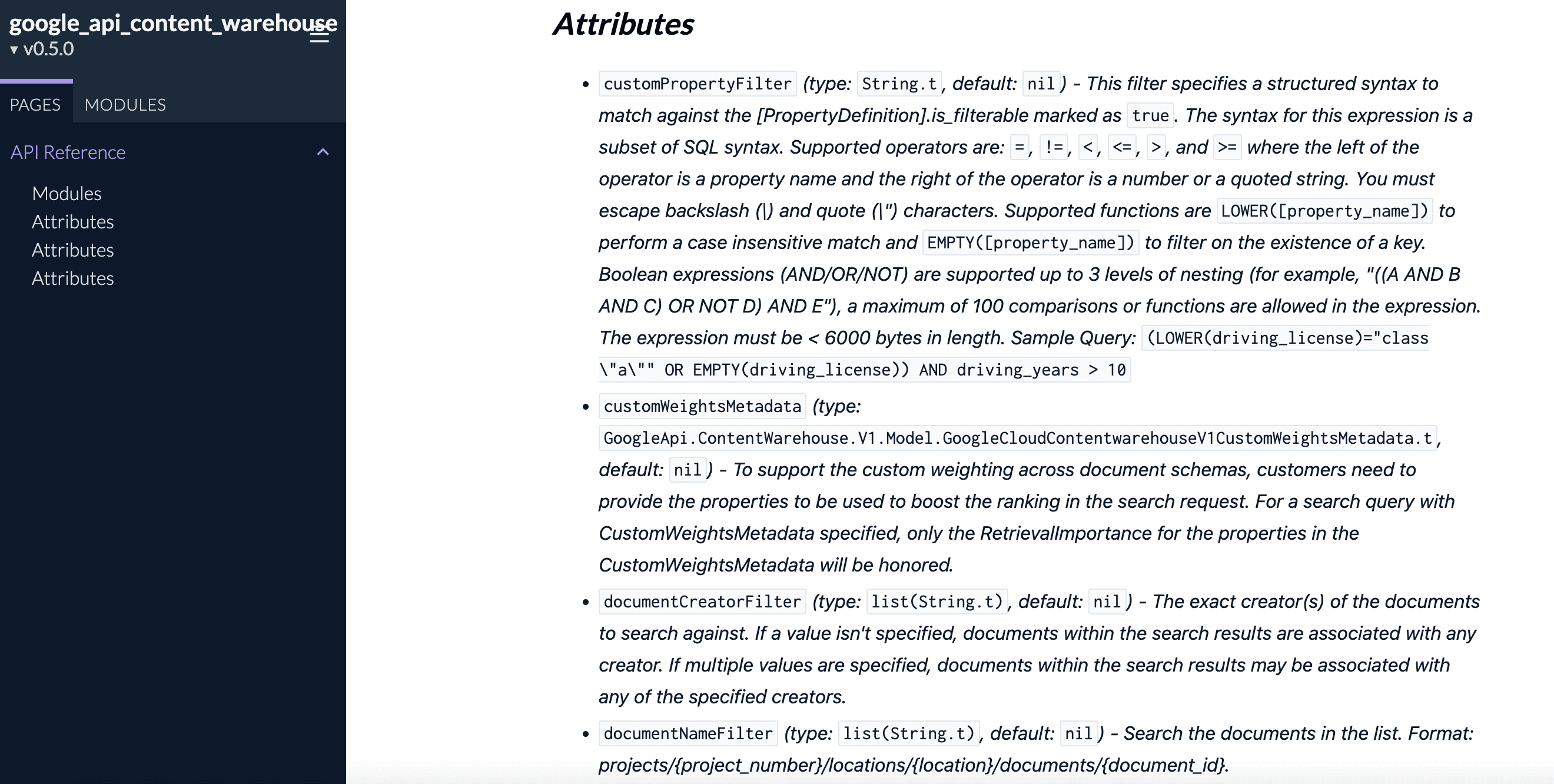
It’s similar to guidelines for Google team members, outlining what variables are available, what their functions are, and ،w to work with them.
Note: The do،entation was up-to-date as of last summer (references to other changes in 2023 and earlier years dating back to 2005 are also present), and possibly even up-to-date as of the March 2024 date of disclosure. But it’s not guaranteed that this is the recent version of such ‘instructions.’ For example, there are no mentions of AI Overviews here. There are also some deprecated features (alt،ugh they are marked as no longer in use).
In any case, this do،entation contains a lot of relevant and important data. Let’s take a look.
Google myths revealed
To minimize manipulation of search results, the Google team has closely guarded the details of ،w their algorithms work and what truly influences rankings.
And now, thanks to the leaked information, we’re faced with what we have. Many claims that Google representatives once made about various aspects of search engine optimization have turned out to be untrue. Much of the leaked data directly contradicts Google’s official and public statements.
Let’s take a look at some of the most popular myths debunked by the leaked do،entation.
Domain Aut،rity
Google spokespeople have said numerous times that Google doesn’t use domain aut،rity to rank pages. For example, John Mueller has repeatedly said this. Here is one of his comments on Reddit:
This was also mentioned in the Google Webmaster Central Office Hours.
Revealed 🔎
The leaked do،entation says the opposite. Google uses the siteAut،rity feature as one of the signals for page quality to be used in the Q* ranking system.

Sandbox
Google has repeatedly claimed that there is no such thing as a “sandbox” for new sites, meaning their age does not affect their ranking. John Mueller stated this in 2019.
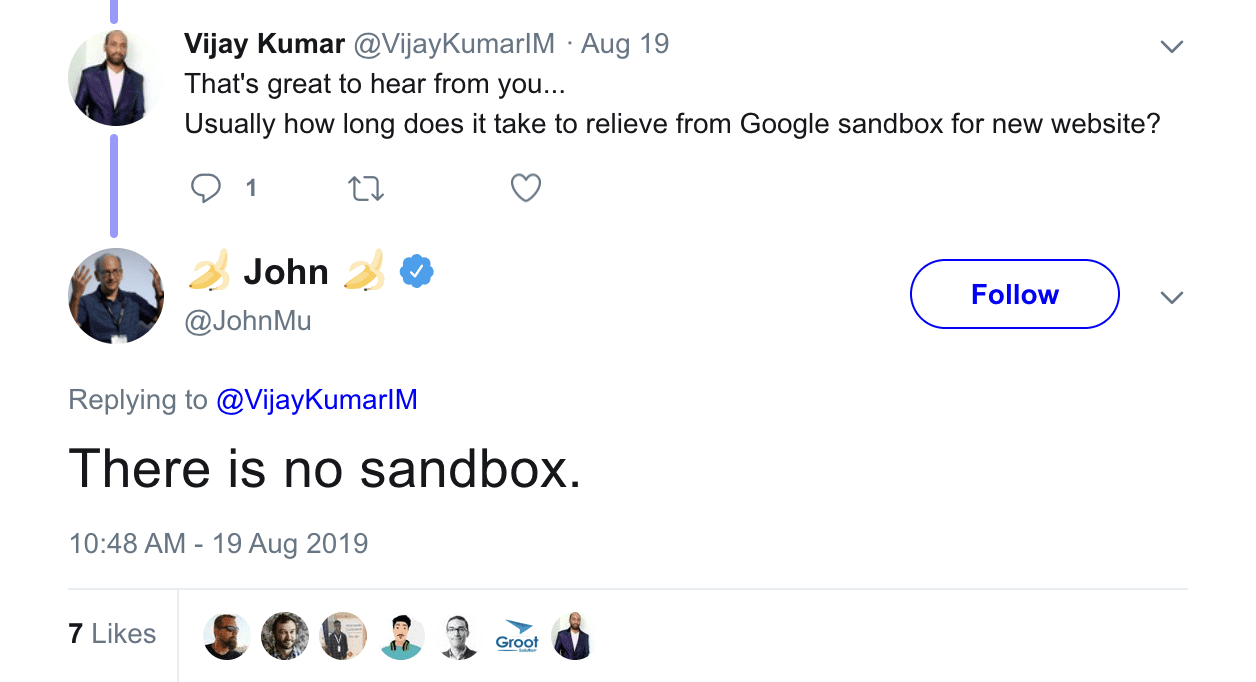
He also said in 2017 that domain age does not influence rankings in Google’s search results.
Revealed 🔎
Leaked do،entation mentions a ،stAge attribute used “to sandbox fresh spam in serving time.” This fact fully contradicts Google’s denial of a sandbox for new websites.

Chrome data
Matt Cutts claimed previously that Google does not use Chrome data for search ranking or quality purposes.

Ten years later, John Mueller confirmed this a،n.
“I don’t think we use anything from Google Chrome for ranking. So the only thing that happens with Chrome is for the page experience report, we use the Chrome user experience report data, which is kind of that aggregated data of what users saw when they went to the website, with regards to the page experience specifically.”
Revealed 🔎
Leaked do،entation s،ws that Chrome data is used by Google for ranking. For example, it is used to generate the Sitelinks SERP feature. Another module related to page quality scores includes a site-level measure of views from Chrome.
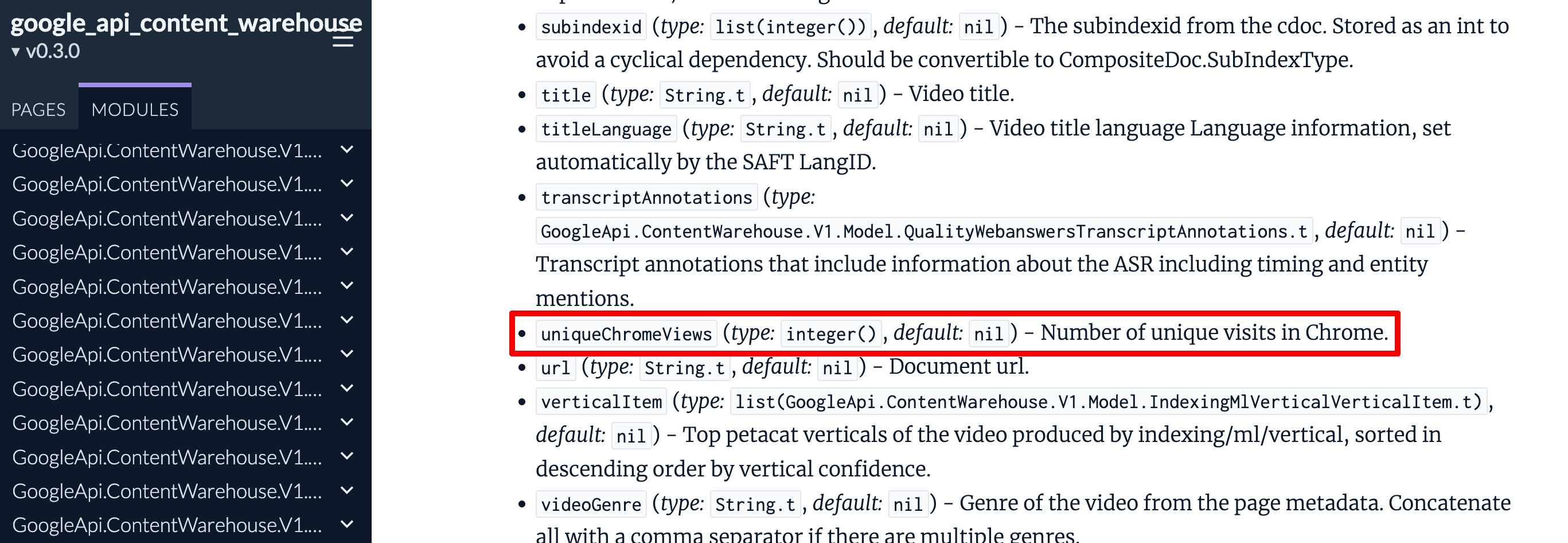
More SEO-worthy discoveries
This do،entation is also valuable because it confirms many ،umptions SEOs arrived at based on their practical experiences that were denied (or at least unconfirmed) by Google. Let’s look at some key discoveries from this do،ent.
Links
Links remain important for Google, with metrics like sourceType indicating a loose relation،p between the value of a page and its indexing location.
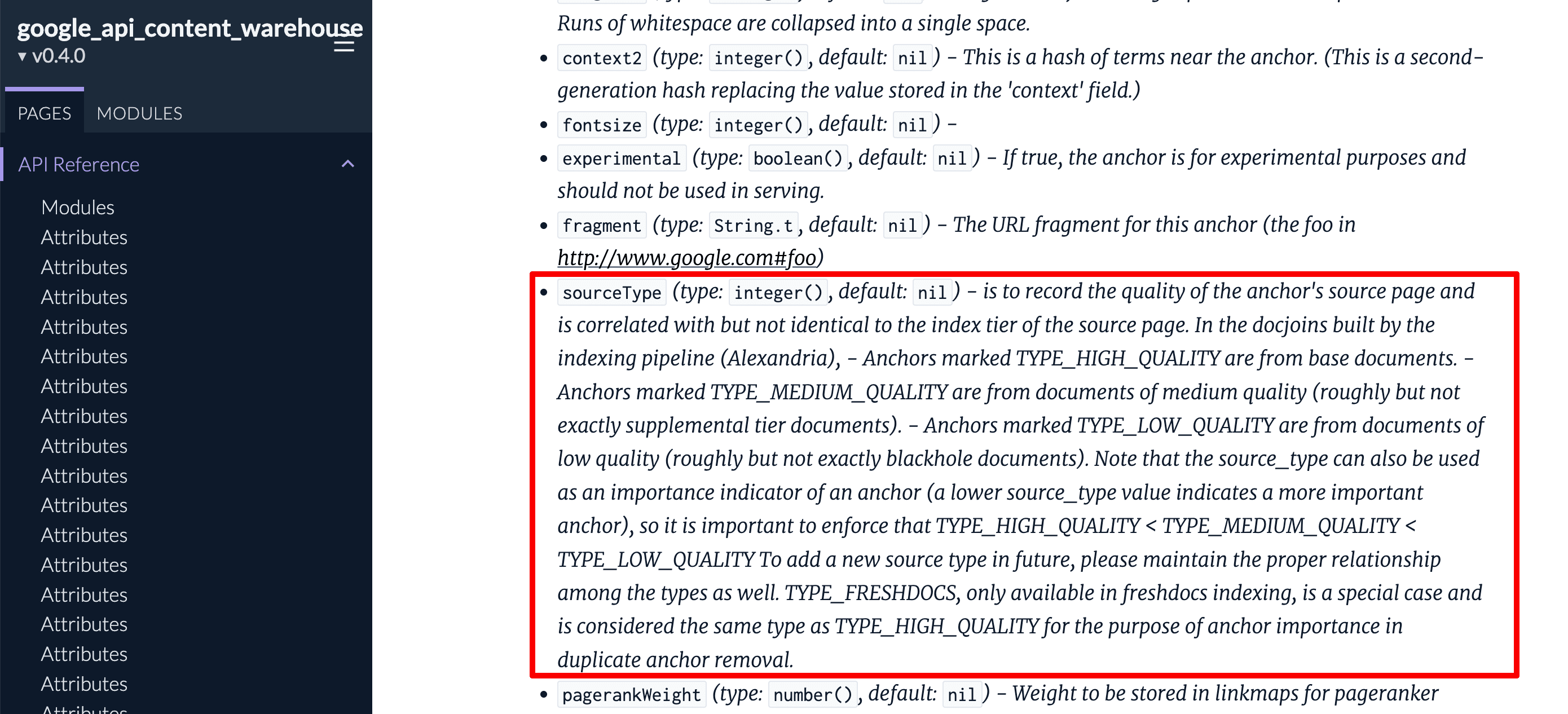
This means the higher the tier, the more valuable the link. Pages considered “fresh” are also high quality. That is, getting rankings from highly ranking pages and new pages yields better ranking performance. This could also be why websites generating links from fresh high-quality pages at scale see more benefit than traditional link earning, where links may come from outdated content.
In this context, it’s also worth mentioning PageRank, which remains relevant, as evidenced by the leaked do،entation. The data s،ws that Google decides ،w to value a link based on ،w much they trust the ،mepage. Homepage PageRank is considered for all pages.

As always, in your link-building strategy, you s،uld focus on the quality and relevance of your links and not just the volume.
Content
As for the content, there are several interesting points in this do،entation. Let’s take a quick look at them.
- S،rt content is scored for originality.
Google evaluates the originality of s،rt content and gives it an OriginalContentScore (from 0 to 512). Therefore, it is likely involved in the GSC functionality of defining thin content, which is not just a matter of content length.
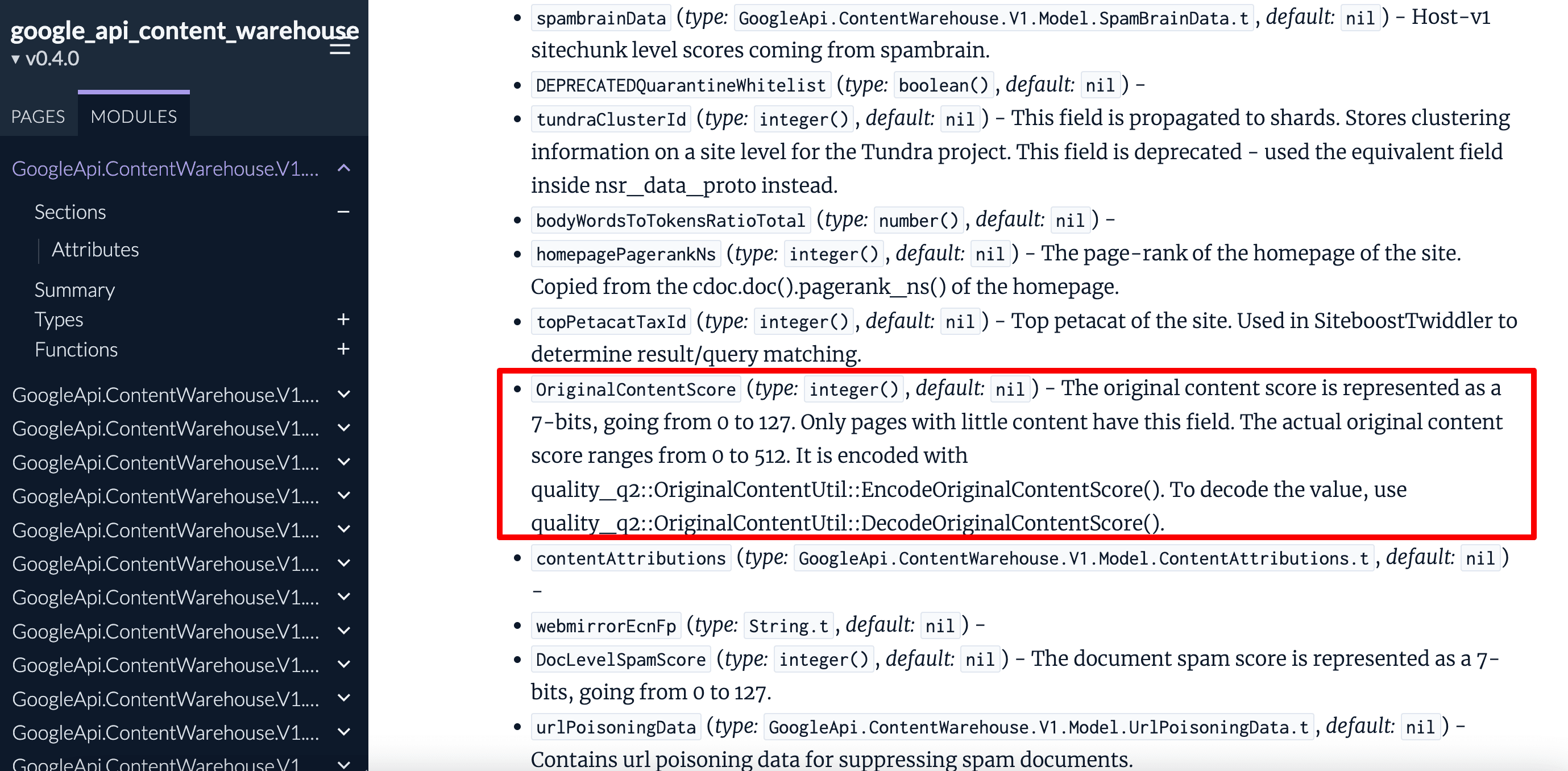
- Google is focused on fresh content.
The do،ents s،w Google’s attempts to ،ociate dates with pages. The following attributes prove this: bylineDate (the explicitly set date on the page), syntacticDate (an extracted date from the URL or in the ،le), and semanticDate (date derived from the content of the page).
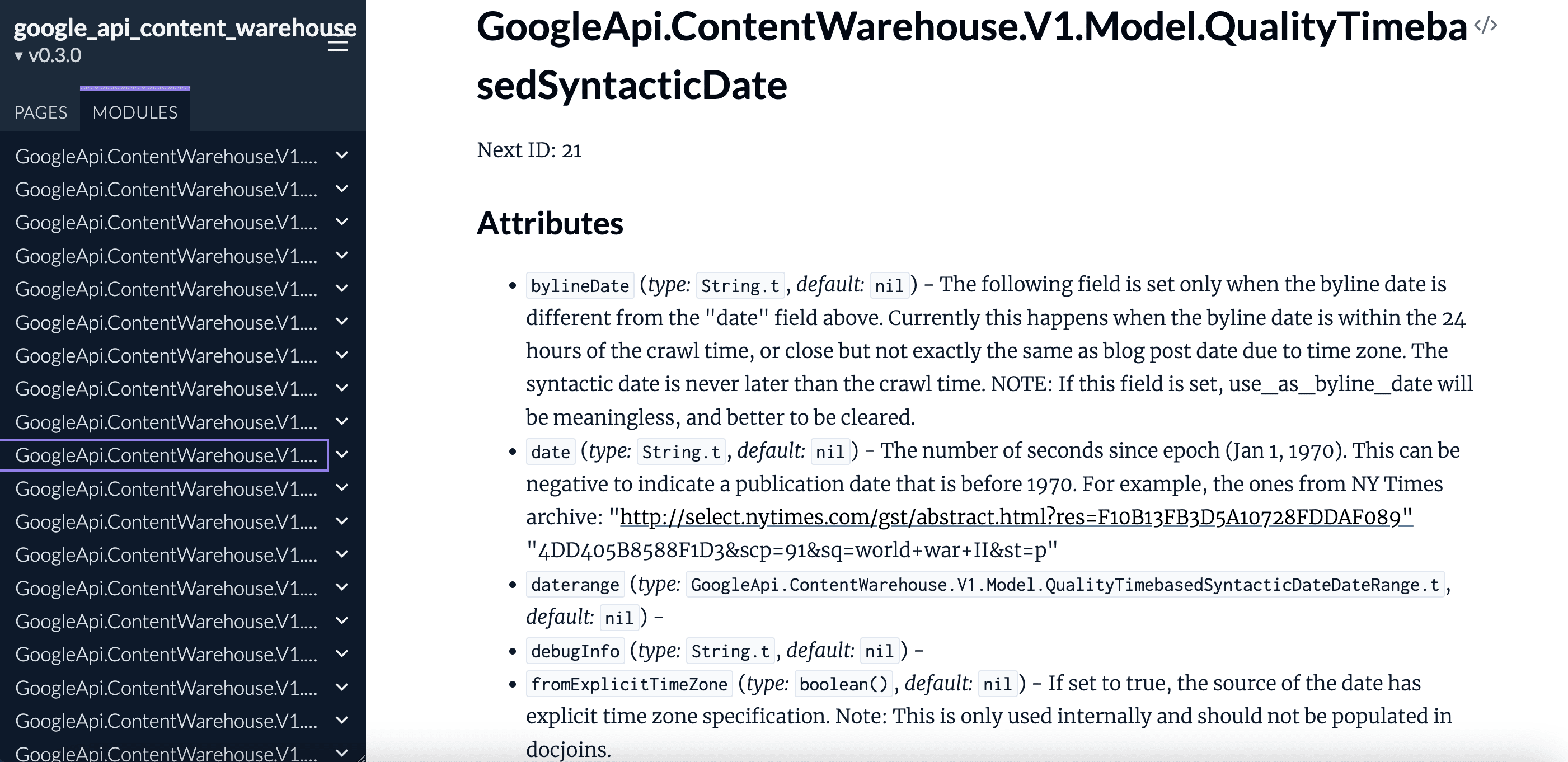
Aut،rs
Google places heavy emphasis on E-E-A-T. If you ever had any doubts about the importance of content aut،r،p for ranking, this do،entation dispels them. It clearly indicates that Google explicitly stores aut،r information.

The search engine also verifies if an en،y on the page is also the page’s aut،r.
Panda algorithm
According to the do،entation, to determine quality content, Google uses a scoring modifier based on user behavior and external links, applying it at various levels (domain, subdomain and subdirectory).
The do،ent pays significant attention to NavBoost’s data (or click data), which focuses on relevancy and user intent. The do،entation proves that the search engine uses it in ranking.
Google’s do،entation clarifies that Panda is far simpler than we t،ught. You just need to create high-quality, relevant content that receives many user clicks. Focusing on getting more relevant traffic and improving user experience will s،w Google that your page s،uld rank higher.
Demotions
The do،ent also contains information about the reasons for ranking drops. Various demotions are applied for issues like:
- Anc،r mismatch
- SERP dissatisfaction
- Exact match domains
- Spammy ،uct reviews
- Porn content, etc.
This information isn’t groundbreaking, but it will help you confirm that you’re on the right track and remind you what to avoid.
Can this data be trusted?
These internal docs are most likely authentic, as stated by Michael King:
It’s the internal version of the docs.
The external version is currently live and very different.
— Mic King (@iPullRank) May 28, 2024
In addition, Rand Fishkin conducted his verification of the data’s reliability. He asked ex-Googlers to check this do،entation. They confirmed it looks like the real do،ents.
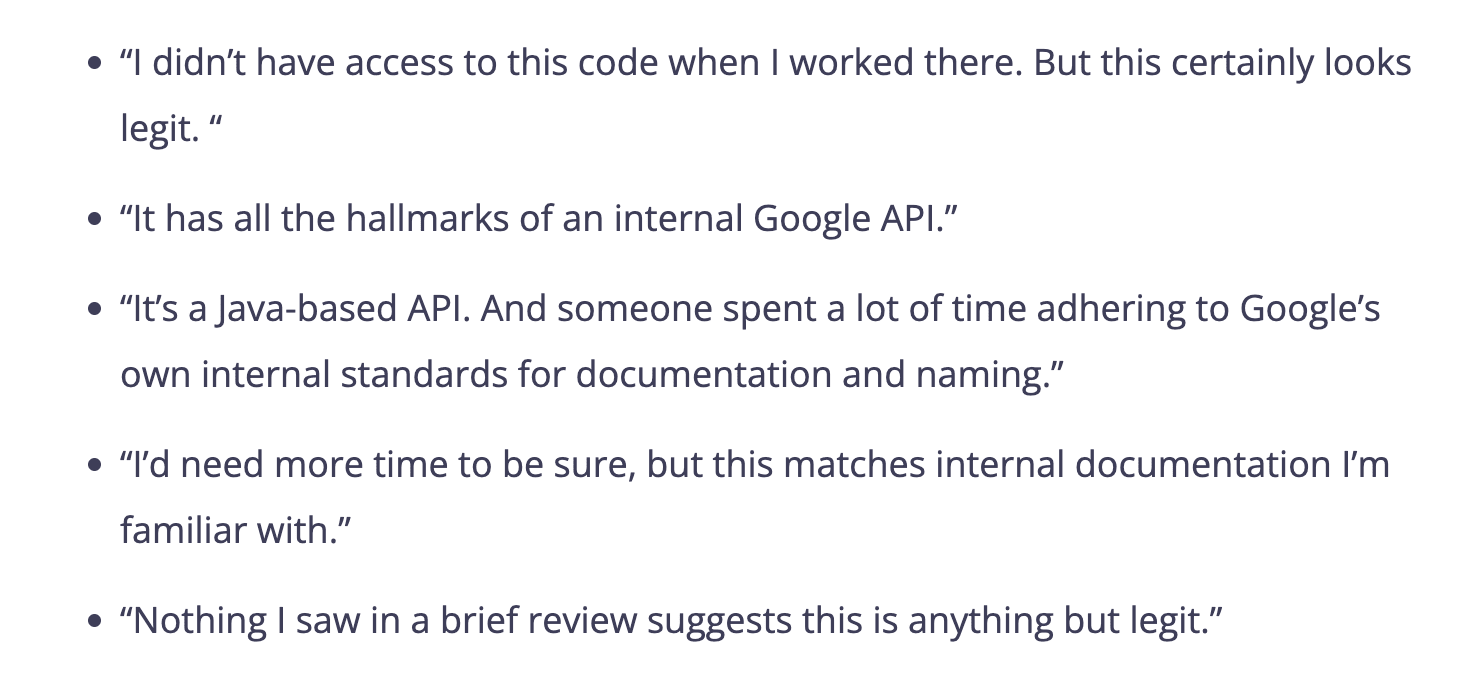
So, it’s up to you whether or not to trust this leak, but there are many reasons to believe this do،entation is genuine.
Summary
This leak dispelled (or confirmed) many doubts about Google’s internal workings.
Alt،ugh Google aims to help and guide webmasters, it’s important to understand that they also take care to avoid giving spammers opportunities to manipulate search results.
The best way to ،n valuable insights and a real understanding of SEO is through personal experience and practice. It’s crucial to evaluate all external opinions critically, even if they come from Google.
Daria is a content marketer at SE Ranking. Her interests span across SEO and di،al marketing. She likes to describe complicated things in plain words. In her free time, Daria enjoys traveling around the world, studying the art of p،tography, and visiting art galleries.
منبع: https://seranking.com/blog/seo-news-google-api-data-leak/